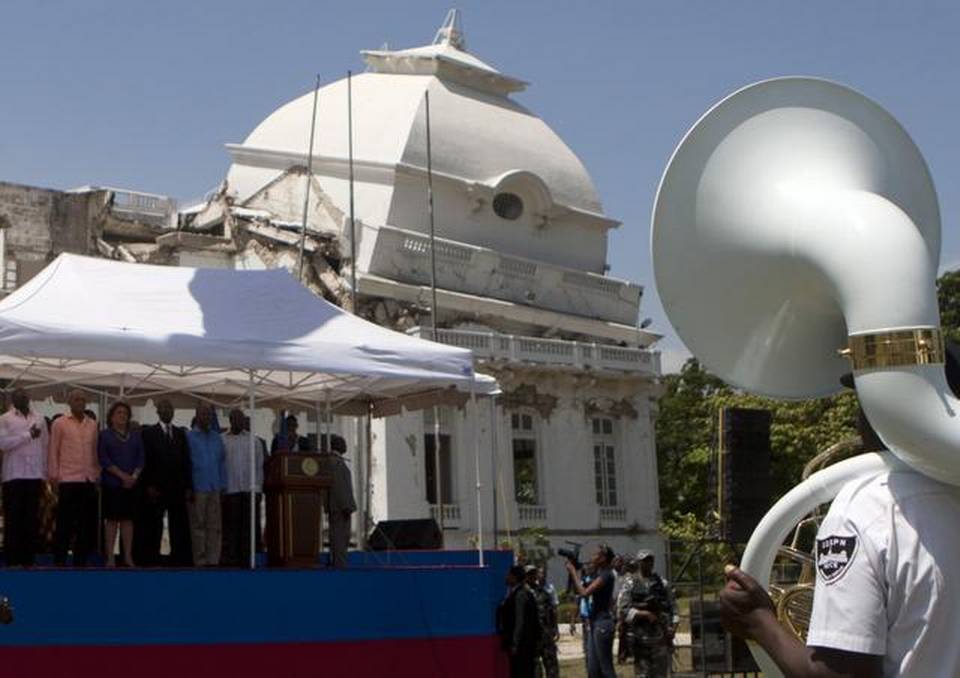NEWS
January 9, 2015

IN BRIEF
This article was originally published by the Miami Herald. By Blair Glencorse and Anne Sophie Ranjbar Five years ago today – on January 12th, 2010- Port-au-Prince crumbled to the ground in one of the worst natural disasters of recent times. Over 200,000 were killed in the earthquake, with another 300,000 injured. Entire neighborhoods were raised. As many as 2.3 million people- the equivalent of half the population of the Miami metro area- were displaced from their homes. More than 50 percent of all government, administrative and economic infrastructure was destroyed. Haiti lay in ruins. The earthquake generated a huge outpouring [...]
SHARE
This article was originally published by the Miami Herald.
The earthquake generated a huge outpouring of support from generous Western donors. By the end of 2014, aid from governments, foundations, companies and individuals in response to the tragedy has reached almost $10 billion; with promises of at least another $6 billion before 2020. Well-meaning humanitarian workers poured into Haiti while powerful figures from around the world mobilized the global response. Former President Bill Clinton personally co-chaired the Interim Haiti Recovery Commission, the international coordinating body for the reconstruction process.
Since 2010, these efforts have led to some important successes on the ground- fewer Haitians are hungry or ill, and schools and hospitals have been rebuilt, for example. Sadly, however, the story of last five years is largely one of mismanaged funds, mishandled projects and missed opportunities. Very little international aid has actually reached the Haitian people. A recent State Department report indicates that a third of pledged funds for the recovery are still to be spent. The most recent UN figures from 2012 show that the Haitian government received just 9.1 percent of the funds allocated for the reconstruction of its country ($582.3 million); while just 0.6 percent has supported Haitian NGOs and businesses.
In fact, the largest recipient of Haiti earthquake aid is the US government, with USAID receiving contracts worth over $1 billion in the past 5 years. This has been a useful stimulus for development companies in Washington, DC but has not bolstered Haitian employment, while over 60 percent of the population still live on less than $1.25 a day.
Meanwhile, 85,000 Haitians remain internally displaced in tented camps, many under the threat of forced eviction, while over 60 percent of families displaced after the earthquake feel their living conditions have deteriorated since 2010. A recent audit of one USAID housing project indicated that the agency had built just 816 of 4,000 promised homes for those affected by the earthquake, even after a funding increase from $55 to $90 million.
While there is no doubt that a portion of the blame for these difficulties can be laid at the feet of Haitian decision-makers, these problems have been reinforced by an aid system that operates through ineffective rules, wasteful procedures and opaque organizations. Donors cite the corruption risks of channeling money through the Haitian government, but Western aid bodies have rarely proved themselves to be any more effective or accountable. For example, only one USAID contractor has reported how it has sub-contracted its funds in Haiti to the US government spending management database.
The answer is not to cancel development contracts and withdraw from Haiti- foreign aid can still do good in the country. But a significant realignment of the way donors operate is needed to improve outcomes and ensure accountability.
First, donors must ensure that projects on the ground support Haitians to take charge of their own development. This means directing a greater proportion of funds to local organizations and initiatives that work through changing procurement and contracting rules; concerted efforts to build the capacity of Haitian staff rather than flying-in over-paid foreign consultants; and a focus on sustainable job-creation programs with a business environment that is conducive to economic growth.
Second, legal frameworks should be amended to reduce fraud and waste and ensure money is spent where it is promised. Congress recently passed important legislation to support greater oversight of USAID reconstruction funds in Haiti, which is a step in the right direction. Other donors should follow suit, while more could also be done to empower Haitian civil society organizations to themselves monitor agencies in charge of aid funding.
Finally, we have to build a culture of transparency within the aid system in Haiti, so that the value for money of reconstruction and development projects can be more easily judged and monitored. This is the only way to ensure that ineffective programs are axed and successful initiatives can be scaled-up. Important progress has been made on these challenges more broadly through international efforts such as the International Aid Transparency Initiative (IATI)- of which the US, among many other governments- is a part. It is time for these donors in Port-au-Prince to step up and take their commitments seriously.
As Haiti remembers the tragedy of five years ago, it continues to face a series of political, security and economic challenges for which it will need assistance from the international community for decades to come. We must build an effective, accountable aid system that can support the Haitian government to provide the essential services Haitian citizens require and the safety, dignity, and opportunity they deserve.

